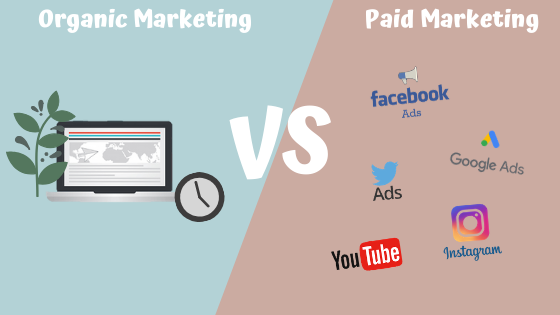Module 4 – Search Engine

What is Search Engine Optimization?
Most search engines basically work in the same way. When a person wants to find something, they type in a word or phrase, called a search query. Then, the search engine compares that query to its catalog of web pages, pulling out the best matches to show the searcher. These are displayed on a search results page.
By knowing how a search engine decides what a page is about and how to reach the catalog, you can optimize your pages to make sure they show up in the search results of people looking for websites just like yours.
This is what we call Search Engine Optimization.

How it works
First, the search engine will look at the title of the page. Your page title should accurately describes its content. The next thing you’ll want to think about is the page’s text. Think about who you want to visit your page, and what words they’re using to describe your products and services. Try to speak the language of your customers when you write your content.
Images are very powerful in a website. But search engine wont see the mouth-watering photos of your products. To help search engines identify the image, give it a descriptive name. Together, all of these tips can help search engines understand your pages and put them in front of the people that matter – your potential customers.

Get discovered
Search engines have formulas, or algorithms, that help them order the list of results. Search engines might look at how popular your site is, or what other people or sites are saying about you. They might consider words on your web pages or keywords in the code of a page to better understand the topic. They will also consider the searcher’s geographic location. And, with the explosion of mobile usage, search engines now consider the devices people use when they perform a search.
Your goal will be to help the search engines to have your business listed in the first results of the organic search, the free zone.

Organic vs Paid
When a search engine returns results some of them are paid advertisements; they’ll be separate and labeled as ads. The rest are unpaid results that the search engines believe are relevant to the phrase entered into the search box. These are referred to as “organic results.”
So, how do search engines decide who wins? The primary components are the bid and the quality. The bid is the maximum amount an advertiser is willing to pay for a click on an ad. If someone clicks the ad, the advertiser is charged an amount equal to—or sometimes less than—the bid. Bid averages vary industry-by-industry, and keyword-by-keyword. Bids are important, but so is quality. Quality is where you can improve your presence for free.

Keywords
Search engine optimization is an ongoing process. You will have to discover what words and phrases people use to search for your products or services, and improving the content on your site.
But how to choose the right keywords? Ask around you, family, friends and most important your customers. What words would be used if they had to find you on the web? Some tools on the web like Answer the public, Uber suggest and Google Trends might help you to find more keywords or phrases. But remember the golden rule: Your site’s content should be made for your human visitors, not for search engines.

Google Search Console
Want a great tool to get your website more traffic? Google Search Console is a service that gives you feedback about how your website is doing in Google search results.
It has two primary functions. It monitors your performance in Google Search results and it also shows you how Google “sees” your site. Search Console might be able to help you out. One way is through its “Search Analytics” reports. This can help you answer a few important questions like which searches bring people to your site.

Conclusion
This module is complex so don’t worry if you can’t understand everything. Also be aware that improving your online presence with all these tools is a lot of work and could be the subject of a specific assignment.
An account must be created in google to access the tools. Then you have to register your site in different places and integrate the required codes in your website or even in social networks. This requires regular monitoring to see the effects and this subject will be covered in the last module on web analytics.
For more details on SEO, you can follow the SEO training.